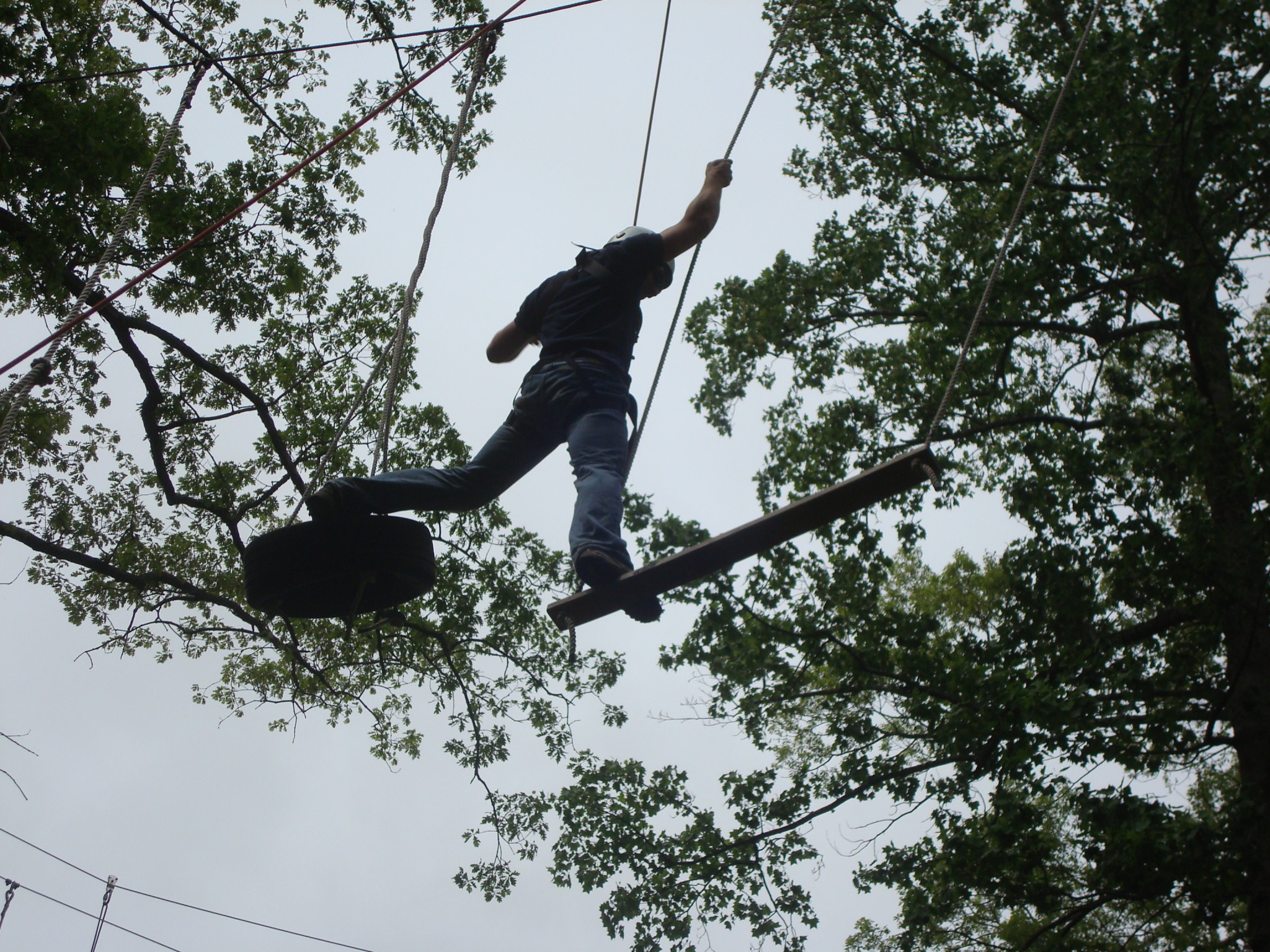Adventure Games. Kayaking. Canoeing. Rock Climbing. Yoga. Tai Chi. Judo. Scuba, and more. These highly coveted one-credit kinesiology classes are among the first to fill up during registration and seem to be on everyone’s undergraduate bucket list. The scramble to register for these courses has intensified in recent years as news spread across campus: better take them now, because the kinesiology activity courses will be discontinued by spring 2018.
There’s a broad consensus that outdoor and adventure education, as well as physical activity, has far-ranging benefits for physical and mental health. Both anecdotal evidence and scientific data say the same thing: these classes make students happier and healthier. The surgeon general suggests that schools and universities make physical activity a “key component of a comprehensive education.” Given these widely agreed-upon benefits, shouldn’t we be expanding our activity programs instead of ending them?
Though there may be some concern that these courses compromise the academic integrity of a College of William and Mary education, currently a student cannot apply more than four kinesiology activity credits to the 120 academic credits necessary to graduate. Still, many students take more than four classes, knowing full well that they won’t get academic credit for all classes.
And we’re not the only school with this kind of program in place. Both Duke University and the University of Virginia have similar programs that offer course credit for activity classes, including classes like Fly Fishing, Ice Skating, and Fencing. Rather than degrading the value of our degrees, these classes enrich them. We pride ourselves on being a liberal arts institution that values well-rounded students who have knowledge and abilities across many disciplines, and activity classes are a valuable dimension of a liberal arts education. On top of that, outdoor and adventure classes are of direct educational value to students who wish to go into careers in outdoor education and recreation — a field with 6.1 million jobs in the United States.
The College may hope that the benefits of these classes will be provided by Campus Recreation or that students will seek them elsewhere, but the activity program is unique in how it serves our campus community.
Now there is the question of funding. While equipment can be pricey, the activity program gear has already been purchased and is in use. Additionally, students are charged an activity fee to take part in these classes. Though funding for higher education in general is undoubtedly a serious concern, the College has yet to release a statement about the cancellation of the activity program. Without transparency, we have little understanding of why activity classes cannot continue.
Physical education was once an academic requirement at the College, but it was eliminated due to budgetary constraints in 2002. In a statement, the William and Mary Educational Policy Committee said that “[e]ncouraging the continuation of physical education in the William and Mary curriculum is supportive of the overall mission and goals of the College.” They also stated that if this decision turned out to be a “detriment to the overall experience of students at William and Mary,” it would be reconsidered. Why are these concerns no longer relevant in the decision to entirely eliminate the program?
Most Campus Recreation trips last only a weekend and, although they are a great way for students to venture off campus and learn technical skills, a weekend trip cannot offer the same depth of learning as a semester-long class with a full-time outdoor instructor.
The College may hope that the benefits of these classes will be provided by Campus Recreation or that students will seek them elsewhere, but the activity program is unique in how it serves our campus community. Unlike many expensive for-profit outdoor experience programs, the fees for these courses can be covered by students’ financial aid packages, making them accessible to students from all economic backgrounds. Though students can take advantage of exercise programs and opportunities through Campus Recreation, the pass/fail activity classes incentivize students to set aside time to spend outside and stick to an exercise schedule. While Campus Recreation runs low-cost outdoor trips, these trips provide a different kind of experience than the activity classes. Most Campus Recreation trips last only a weekend and, although they are a great way for students to venture off campus and learn technical skills, a weekend trip cannot offer the same depth of learning as a semester-long class with a full-time outdoor instructor. Lastly, there is also the issue of capacity. Cutting these activity classes will mean that fewer students will have the opportunity to engage in outdoor activities, period.
Ask a student about their favorite classes at the College, and there’s a good chance they will tell you about the semester they took Adventure Games, or Whitewater Canoeing, or Yoga. These are the kind of classes we tell high schoolers about on tours, the kind of classes that make students feel like they belong on our campus, and the kind of classes that make William and Mary students who we are. We are balanced, we are fun-loving, we value health and happiness and we are bold. It would be a shame and a loss to our community to take away the program that has given so many students so much. We have something good here, William and Mary. Let’s fight to keep it.
Want to help? Please sign our petition!
Email the authors at ajmeredith@email.wm.edu, cjmay@email.wm.edu, and resmith@email.wm.edu.
Links
- “Broad consensus”: http://www.englishoutdoorcouncil.org/research.in.outdoor.learning.html
- “Suggests”
http://www.wm.edu/as/kinesiology/activityprogram/index.php
- “Duke”
https://recreation.duke.edu/academic-classes/courses/
- “UVA”
https://rabi.phys.virginia.edu/mySIS/CC2/KINE.html
- “6.1 million jobs”
https://outdoorindustry.org/research-tools/outdoor-recreation-economy/





























